
Topaasia: Equality is a dialogue game that facilitates and promotes the discussion of equality and parity in teams and work communities. The content of the game has been made in collaboration with Anna-Leena Klemetti-Falenius, who works as a trainer for STEP training.
Who are you and what do you do?
I am Anna-Leena Klemetti Falenius, more familiarly Annu. In Finnish work culture, it is easy to introduce oneself through job status, and I can say that I am a vocational education teacher and an educator in the study center, but rather I want to tell who I am as a person: i am a mother, currently in a state of change when the firstborn has just flown out of the nest, the youngest is still living with me and my spouse. I am a middle-aged, middle-class, and Caucasian woman who has awakened in her life to many privileges and issues that touch on the theme of equality. During leisure, I’m a human rights activist, like to lie on the couch, read a book, and knit socks. A pretty ordinary person in all her uniqueness.
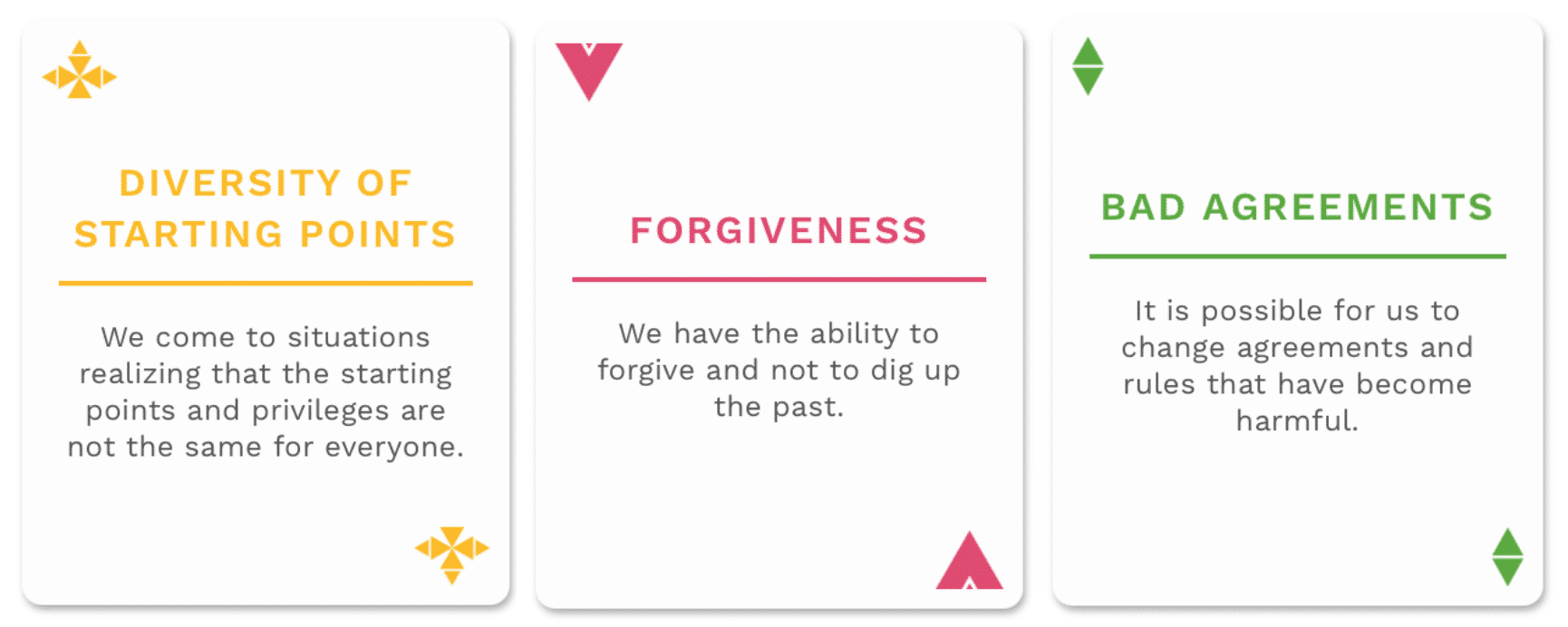
How did you get interested in the theme of equality?
The roots are certainly in early childhood, that is, in-home education and in the work that parents have done. We lived in places where we were with a wide variety of people: people from different minorities, people who learn differently, and people from different walks of life. From an early age, the idea that every person is welcome in places or places where they live or work is ingrained in me.
I have traveled abroad and also studied and lived in Russia. There I saw a lot of challenges related to equal opportunities. Thoughts arise on the travels, such as what “being Finnish” means to me. Or what it means to be allowed to live in safety and to learn and study. Not everything is the same on a global scale.
For the sake of my work, I have worked with young immigrants in Helsinki in the field of organizations and trained specially in Rom education issues and a lot with immigrants. In the early 2000s, I became acquainted with MOD (diversity, insight, dialogue) education, which was a great eye-opener: taught about the phenomena of society, human rights, development leading to polarization, and more. On top of that, I’m lucky to have close colleagues who have challenged my thinking and know-how.
Ending up with the theme of equality is the sum of many things, and the more things I have tinkered and Finnish society has become more aware of equality and equality issues, I have joined this debate and woken up to have a conscious solution and choice to be on the side of these things.
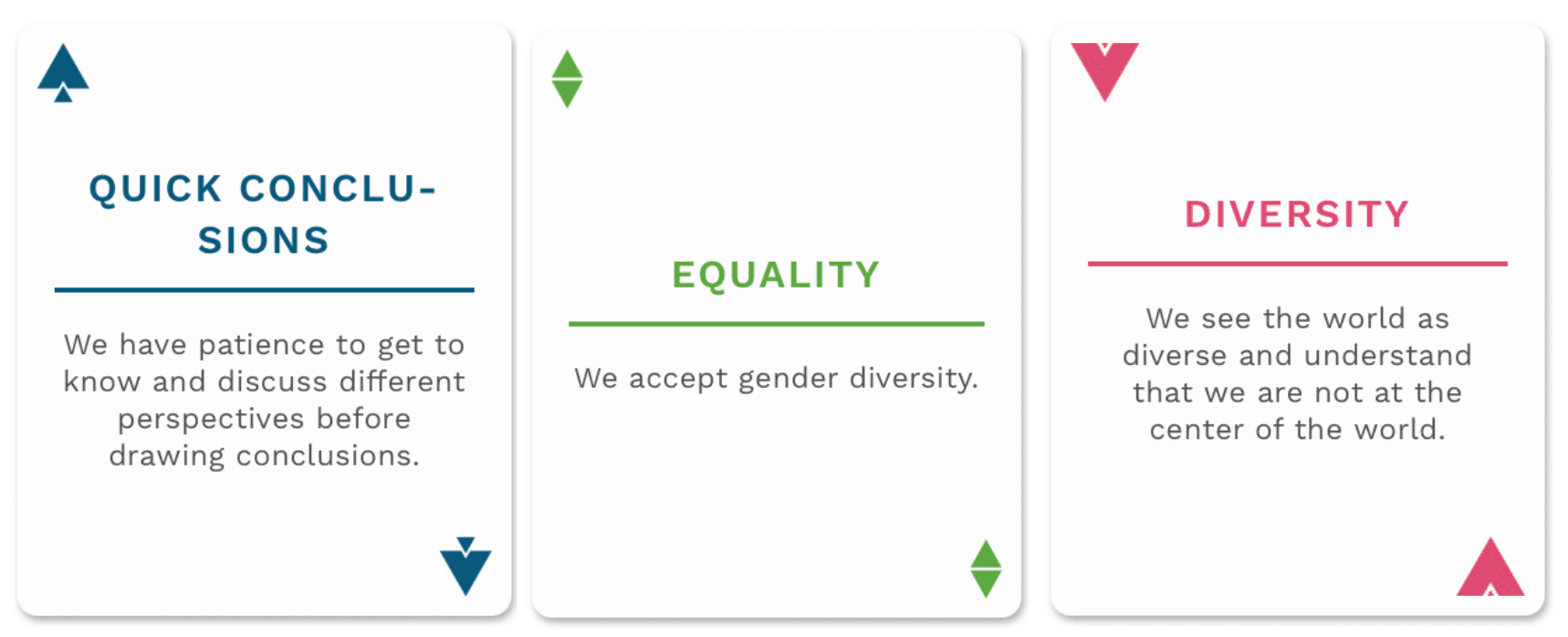
What is equality?
This is a big question. I often use the words equality and parity in parallel. Equality issues are more related to gender equality, Parity issues are more relevant when dealing with different believers, people from different ethnic backgrounds, people with different functionalities and in many ways different privileges. Equality is about creating opportunities by bringing people to the same surface. Suppose there is a lake and I have already got a rowing boat and the skill of rowing, so I can choose whether to go to the island or not. Those who are not on an equal footing with me are still below the surface, meaning they do not yet have a life jacket, rowing boat or rowing skills.
For equality to materialize, we need the help, guidance, enabling, and advice of those on the surface to get everyone on the same surface, after which we can choose which island to row to. Equality for me is to allow similar opportunities in life to the privileges that others have at birth.
On which theories or key concepts is equality based?
I think it is fundamentally based on the Declaration of Human Rights and the legislation and other declarations that come from it: women’s rights, children’s rights, the rights of people with disabilities, the declarations on the rights of indigenous peoples. Equality and parity are words that are easily thrown away, but they rarely stop to think about what they mean and what they are based on.
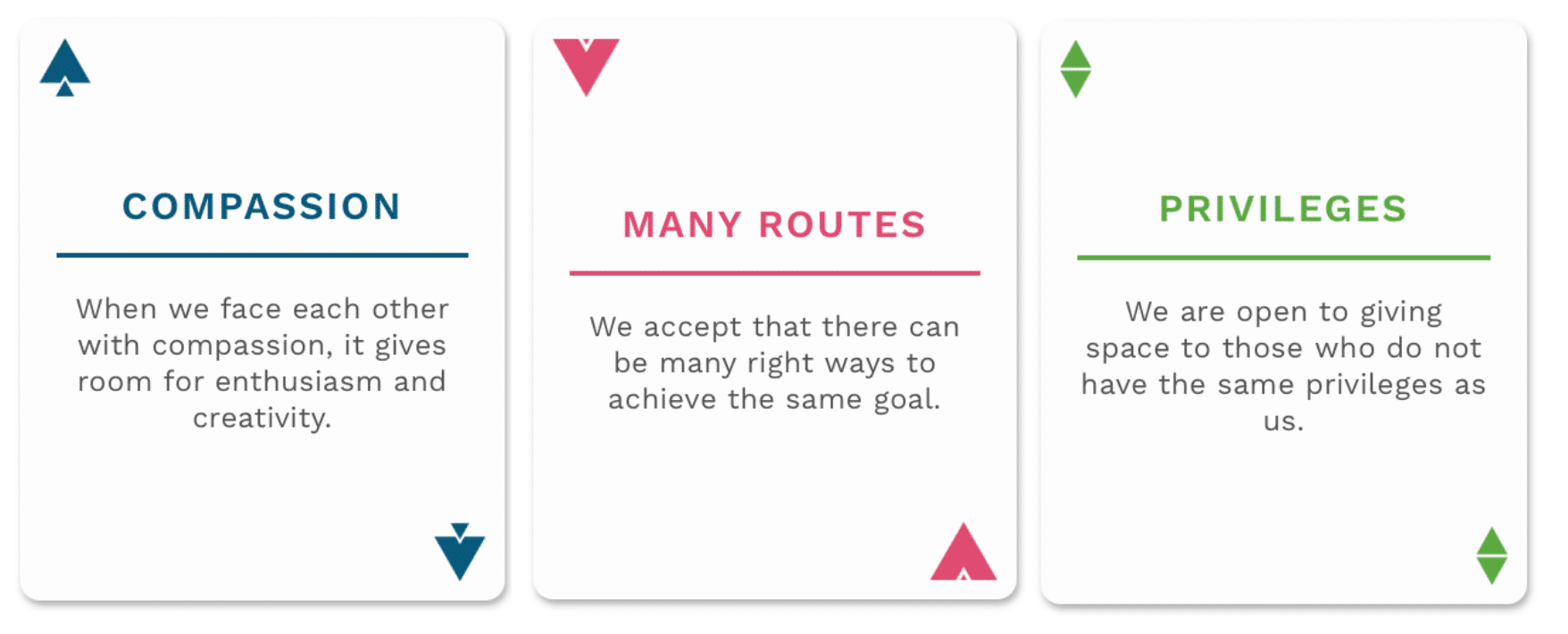
Why was the equality deck made?
We played Topaasia games at work, and while browsing the selection of decks, I noticed that there was not a game specifically discussing about equality at work. I think many of those who play Topaasia are teams in the workforce, and I think there is a need for a more open, bold debate on the themes of equality and parity in the workplace. This is where the idea came from: I thought this could improve people’s skills or the skills of being together in working life and thereby potentially prevent conflicts.
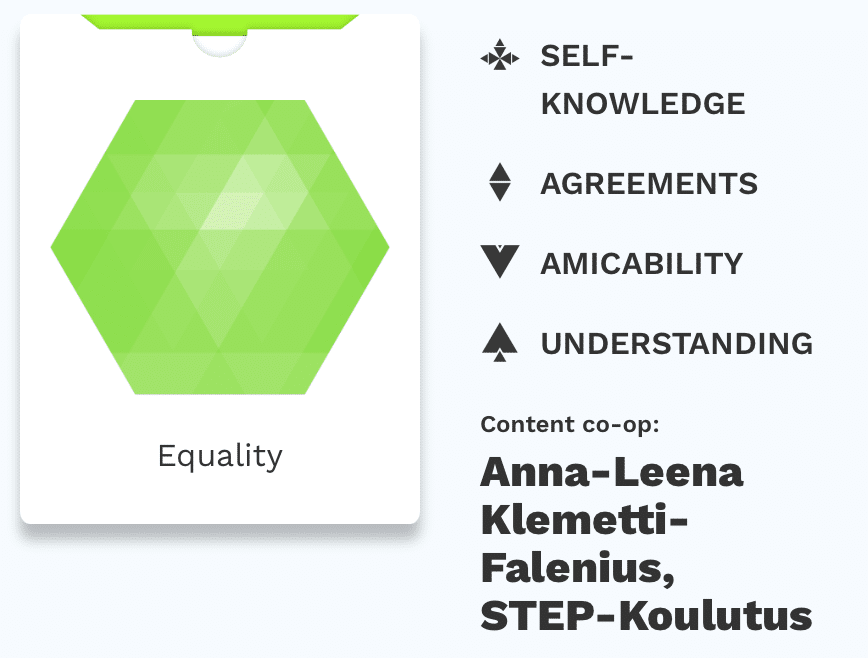
There are four suites in the deck, why these?
- Self-knowledge. Honest looking in the mirror and the ability to admit that sometimes I am an awkward employee because I am tired, something bugs me, I want to win others or I am prejudiced. Good self-knowledge helps to act smarter, prevent conflicts at work and improve working life together
- Agreements. Agreements are important because if we go only on hunch and feelings – empathy, sympathy, or compassion – equality and parity will not necessarily be strengthened for everyone. Maybe I’ll give privileges to those I like more or are sweet guys for some reason. It would always be good to have someone with a value base, and I think agreements are a common value base in this deck: there are cards like justice, equality, dialogue skills, for example.
- Amicability. The idea in this suite is reconciliation and forgiveness. The fact that there are many routes to get where we want to be. Building peace, not deliberately seeking conflicts or quarrels, but not necessarily avoiding them, sometimes it is good to quarrel. Peace in working life and society is sought here.
- Understanding. In addition to self-knowledge, this suite is about understanding common things and understanding others. What kind of knowledge is the basis for cooperation, how do we perceive competition, etc?
There are things like this in this deck. It was not easy to build! There may be something left unsaid and some cards may feel like a replay.
Who is this deck for and for what topic? For which topic and for what kind of group?
I tested with a group of players who were completely foreign to each other, all of whom were somehow aware of the themes of equality and non-discrimination. One test player commented eloquently “ these cards would be good for everyone in working life to deal with, these are the skills of being human ”. At best, I think this is for a group that is united by work or hobby, i.e. they are somehow the same group.
What individual cards do you want to bring up?
Accumulation of anger
This has been a really important thing for me in working life. How can the bitterness that sometimes comes at work be reduced when superiors have not properly understood or been properly resourced, have become conflicted or misunderstood, and these have not been well managed?
Over the years, I have noticed that when I am exhausted, the accumulation of resentment has been a big burden on my shoulders. When this has been dealt with constructively and professionally at work and resentment diminished, the feeling was truly liberating. Since then, the flow of work has been more present and misunderstandings withstand better in the absence of old bitterness. This is an extremely important card on a personal level.
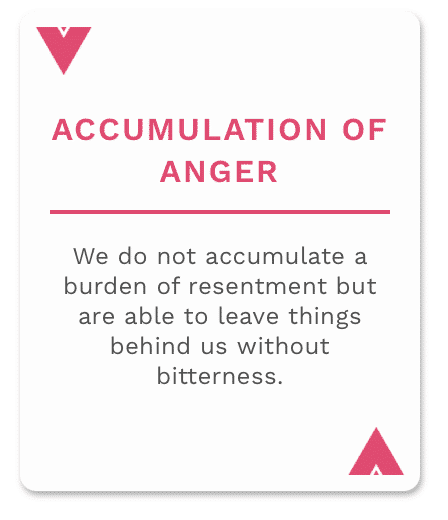
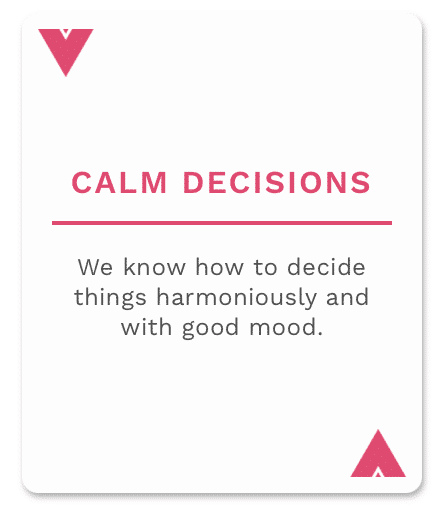
Calm decisions
This is an important card for almost any group interaction situation where there is tension and the situation could end arguably. It is good to strive for an amicable conclusion.
Want to promote and facilitate a discussion about equality in your team, work community, or organization?
1. If you want to use the Equality game for your work community or organization, book a presentation at galla@topaasia.com or call +358 40 024 6626
—-
Other links:
